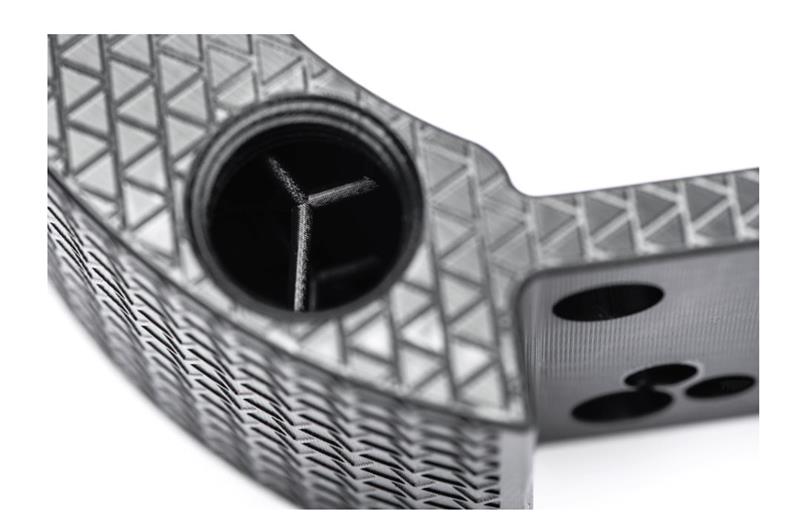Unveiled at the Fabtech show held in Chicago earlier this month was a line of oil reservoirs made for the company’s QuickTap tapping tool that have been developed using additive manufacturing specialist Carbon’s Digital Light Synthesis technology.
By adopting this proves, Wilson Tool International is achieving cost savings of up to 60%, benefiting from reduced lead times of up to 50% and gaining improved operator safety.
The company was having a difficult time keeping up with demand for QuickTap tapping tool solutions for punch presses, in part because of the long lead times and high costs of fabricated metal oil reservoirs for the system. The oil reservoirs come in six different configurations that vary, depending on the type of punch press. This meant that Wilson Tool International needed to keep high inventory levels to ensure it could deliver on time to its customers. But this approach increased costs and risked part obsolescence.
Tapping tools are a core part of Wilson Tool International’s punch press product offerings aimed at eliminating secondary operations in sheet metal manufacturing processes; up to 200 holes can be tapped per minute. The tapping tool consists of the tap itself, a motor and an oil reservoir.
Each of the six reservoir designs was made from cold-rolled steel that was punched and formed into seven to nine components that were then welded together. Because the seams were welded, each tank needed to go through a rigorous testing process to ensure the reservoir did not leak when pressurised. If the reservoir was improperly installed, it could pose a hazard to the tool and to tool operators, if it was struck by a moving part of the punch press.
“'We knew additive manufacturing could offer us new paths in industrial tooling. Our experience with the oil reservoir demonstrated that Carbon’s process and materials offer fundamentally new applications and capabilities., said Brian Lee Director of R&D and Technology Solutions at Wilson Tool International.
One attempted solution was a fully machined reservoir made from aircraft grade aluminium. Multiple design iterations occurred in six months and, although the quality of the products was in line with their standards, the cost and lead-time goals were still above what Wilson Tool International felt was acceptable to its customers. In addition, each unit still needed to be tested and the hazards associated with a crash in the punching operation still existed. Blow moulding was also investigated, but the tooling cost for the different parts would only drive up the part price and the quality of the product was not acceptable, so these types of solutions were abandoned.
The company partnered with Carbon, based on sample parts, and prioritised developing a proof of concept for the oil reservoir. With the first print in Carbon’s RPU (rigid polyurethane) 70 material, Wilson Tool International qualified the part across all criteria, demonstrating that it was printable, functional and up to 60% less expensive per part. The parts’ lead time could be cut by up to 50% and did not pose the destructive hazard that the metal ones did when they were not installed properly.
The company then went through five different design iterations in three months, ensuring the suitability for Carbon’s Digital Light Synthesis technology and optimising the design for printability, adding mechanical rigidity with an internal lattice and integrating a signature surface finish. Wilson Tool also added part numbers and branded elements to the part files. For the largest tanks, it added an internal lattice structure to provide additional mechanical rigidity. In parallel, the firm validated the parts for both thermal and chemical stability.

Detailed view of a tank, with a custom surface finish and interior support lattice
When RPU 70 passed all of the tests, Wilson Tool International qualified the oil reservoir parts for production, broadly implementing the new material across all reservoirs. The savings on these parts are being extended to consumers through with lower prices, shorter lead times and better, safer parts.









